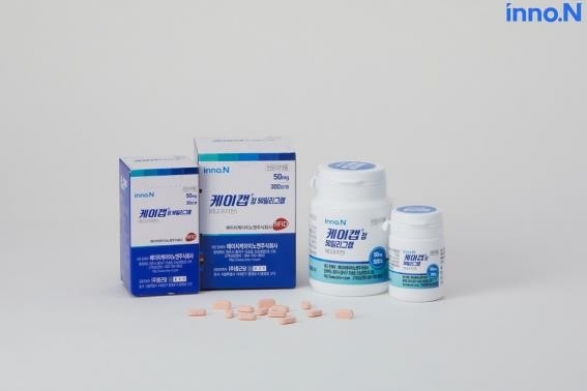Bio & Pharma
HK inno.N reveals differentiated clinical results for K-CAB
The S.Korean pharmaceutical company presented administration method and renal function safety of GERD new drug
By Dec 12, 2023 (Gmt+09:00)
1
Min read
Most Read
LG Chem to sell water filter business to Glenwood PE for $692 million


KT&G eyes overseas M&A after rejecting activist fund's offer


Kyobo Life poised to buy Japan’s SBI Group-owned savings bank


StockX in merger talks with Naver’s online reseller Kream


Meritz backs half of ex-manager’s $210 mn hedge fund



South Korean bio-health company HK inno.N has been expanding its market by steadily announcing differentiated clinical results for its gastroesophageal reflux disease (GERD) drug K-CAB.
K-CAB, expected to exceed 100 billion won ($76.2 million) in sales this year, is a blockbuster drug for HK inno.N.
K-CAB was originally developed in the form of an oral pill. It is divided into K-CAB tablets for general oral administration and K-CAB orally disintegrating tablets that can be taken without water.
At the Korean Society for Clinical Pharmacology and Therapeutics held last month, clinical results were announced, demonstrating that K-CAB orally disintegrating tablets, when administered through the sublingual route, are pharmacokinetically equivalent to oral administration.
This suggests that it could be a new alternative for patients, such as those in intensive care units, where oral administration is not feasible.
It was also shown that kidney transplant patients can safely take K-CAB.
Prof. Jang-hee Cho of Kyungpook National University Hospital presented clinical results at the American Society of Nephrology (ASN) last month, stating that kidney transplant patients can take K-CAB tablets and immunosuppressants together without affecting the blood concentration of immunosuppressants.
Patients taking both drugs showed no signs of immune rejection, and kidney function remained intact.
HK inno.N is consistently conducting clinical trials to expand the target population for K-CAB. Currently, there are about 80 ongoing or completed clinical studies on K-CAB, with approximately 50 published clinical papers.
Write to Young-ae Lee at 0ae@hankyung.com
More to Read
-

-

-
 Bio & PharmaHK inno.N's K-CAB to get insurance benefits in China
Bio & PharmaHK inno.N's K-CAB to get insurance benefits in ChinaJan 20, 2023 (Gmt+09:00)
1 Min read -

-
 Bio & PharmaHK inno.N receives sales permit for ulcer treatment in China
Bio & PharmaHK inno.N receives sales permit for ulcer treatment in ChinaApr 13, 2022 (Gmt+09:00)
1 Min read
Comment 0
LOG IN


